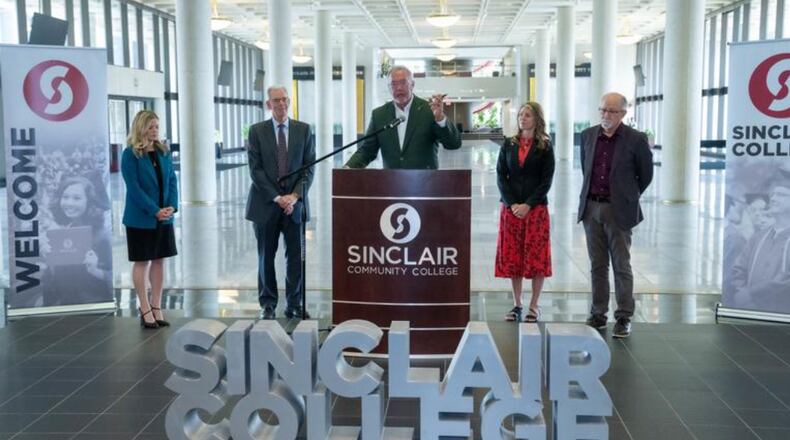Amato said Sinclair’s use of AI in its current form has been around since around 2021, when ChatGPT first entered the commercial market. But there are older AI tools used in other curriculum previously to ChatGPT and other common AI tools.
AI is morphing and being adopted more quickly than other revolutionary technologies, like the Internet, Amato said.
Amato said Sinclair wants students not just to learn how to use AI, but how to do so ethically and by making their future jobs easier.
Last school year, 70 courses and 25 instructors piloted instructional use of AI in the classroom, Amato said.
Melissa Tolle, senior vice president of strategy and advancement at Sinclair, said local businesses are also talking about AI.
“Everybody’s feeling the pressures of some of the really good things AI can do, but also some questioning of the risks and the challenges,” Tolle said.
She added it’s also become more common to see cheating using AI with both the kindergarten through 12 grade side of learning and higher education.
“I think there’s also a responsibility, both on the K-12 side and higher ed, how to teach students the responsible use of AI so that they can use it appropriately in the classroom and their workplace,” Tolle said.
Steve Johnson, president of Sinclair, said he does not believe AI will replace anyone’s job, but he said those who don’t understand AI would be replaced.
“People are going to have to have AI skills to do their job, whether they are a legal assistant or a police officer coming out of our academy or in firefighting, or in just communications, in writing, in basic business communications across all jobs in this region,” Johnson said.
Sinclair trustee Joe Sciabica, executive director of the Dayton Workforce Coalition, said AI will help people operate better and reduce errors while keeping humans at the center of the work tasks.
“AI is not coming to take over jobs,” Sciabica said. “It’s coming to change how we do them. It’s a copilot, not a replacement.”
About the Author

